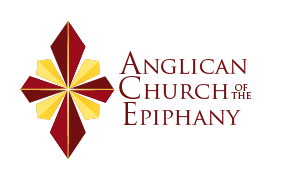Lenten Challenge 2023
On Ash Wednesday, receive the invitation to keep a holy Lent by “self-examination and repentance; by prayer, fasting, and alms-giving; and by reading a meditating on God’s holy Word.”
This year’s Lenten challenge focuses specifically on committing ourselves to the first among these disciplines, self-examination, through the Ignatian practice of examen. As the name suggests, examen invites us to prayerfully examine each day as it draws near a close— reviewing our actions, attitudes, interactions. Practicing examen not only brings to light patterns of sin, but more importantly, opens our eyes to observe the nearness of God’s presence and grace. Self-examination acts as an entryway for repentance, the path toward praise, and a preparation for prayer, good works, and meditation of Scripture. While the Anglican liturgy invites us to reflect, confess, and repent of our sins each week in preparation for receiving Holy Eucharist each week, practicing examen daily over the forty-day fast serves as a form of personal accountability for our Lenten disciplines as well as offers us the opportunity to become more aware of how our Lenten disciplines draw us near to God and put us in combat against “the spiritual forces of evil” (Eph. 6:12).
The following guide includes an opening prayer, reflection questions to assist you as you prayerfully review your day, and an exhortation from the Sermons and Statutes of St. John Chrysostom, which you may choose to revisit each morning. As examen prepares the heart for both repentance and thanksgiving, consider following up your reflection with evening prayer.
Suggestions for adapting this practice to include young children are also included.
Opening Prayer
O God, grant that we may desire you, and desiring you seek you, and seeking you find you, and finding you be satisifed in you for ever. Amen.
Examen Questions
To whom or what did you give your love and attention today? In what manner was this done?
At what points in your day did you experience frustration, anxiety, weariness, distraction, or grief? In what ways did you respond to these experiences?
At what points in your day did you experience God’s love, grace, and mercy? Did you recognize them at the moment? If not, consider why.
In what way(s) did you observe or neglect the Lenten fast today? With what attitude did you observe the fast?
How did the observation of your Lenten discipline(s) draw you nearer to God?
In what ways do you observe the fruits of the Spirit as a result of these disciplines?
In what ways did you experience spiritual warfare or resistance as a result of your Lenten discipline(s)? Did you recognize this spiritual opposition? How did you choose to respond?
Exhortation from the Sermons on the Statutes of St. John Chrysostom
Do you fast? Give me proof of it by your works.
If you see a poor man, take pity on him.
If you see a friend being honored, do not envy him.
Do not let only your mouth fast, but also the eye and the ear
and the feet
and the hands and all the members of our bodies.
Let the hands fast, by being free of avarice.
Let the feet fast, by ceasing to run after sin.
Le the eyes fast, by not listening to evil talk and gossip.
Let the mouth fast from foul words and unjust criticism.
For what good is it if we abstain from birds and fishes, but bite and devour our brothers?
May He who came to the world to save sinners strengthen us to complete the fast with humility, have mercy on us and save us.
Examen for Children
Ask your child to choose what they are most grateful for each day. Use this as an opportunity to discuss together the ways God cares for them in their day to day interactions or tasks.
Ask your child to recall a time during their day when they felt angry, distracted, impatient, or sad. Prompt them to consider why they had that feeling and reflect upon how God can meet them in those moments through prayer. Encourage them to pray for help in those times when they feel overwhelmed. Follow up with them the following day.
